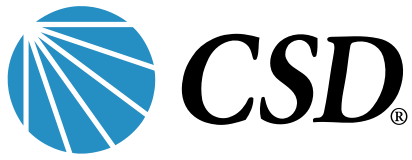

CSD Innovative Technologies Protect Personal Health Information and Expand Employment Opportunity
After contracting spinal meningitis at the age of six, Brandi Rarus, VP of Public Relations and Stakeholder Engagement for Austin-based Communication Service for the Deaf (CSD) became deaf.
Whether it be a mortgage-related appointment with the bank, a parent-teacher conference at school or personal health information (PHI) being relayed to a medical provider, for the deaf or hard of hearing, it’s never completely comfortable sharing such intimate information with interpreters. While she trusts the interpreters to comply with their code of ethics of maintaining confidentiality and electronic systems currently in place, Rarus says, “It can still can feel like an invasion of privacy at times because that interpreter, whom I may see in my community, knows something about me that I do not know about them.”


Fortunately, HIPAA provides protection for those who depend upon others to accurately relay medical information. As a service provider to covered entities, CSD is obligated to meet compliance requirements through business associate agreements (BAAs). Therefore, CSD made sweeping efforts early on to modify internal compliance policies, including verifying that PHI was securely stored in both print and electronic versions, as well as ensuring employees had annual procedural training in the event of a breach.
The deaf and hard of hearing community has been quick to adopt electronic communication means, due in part to the fact that the majority of the organization’s employees use interpreters. With such demand and interest, CSD developed Vineya — an innovative, built-in video interpreting platform. While developing the platform, CSD connected with Datica to ensure compliance with that development process. Developed by thirteen software developers located across the country, Vineya is accessible by the deaf and hard of hearing, as well as for businesses that have communication needs with the deaf population. With the HIPAA compliant Vineya platform, sign language interpreting agencies can schedule preferred interpreters for all kinds of assignments and ensure that the right interpreter is an appropriate match.
One typical healthcare-related scenario that reflects the need for such a platform and its appropriate matching capabilities might be found in a primary care scenario. A provider reaches out to CSD to schedule an interpreter online or in person. “To match the best interpreter skill for the patient, certain PHI comes into play. CSD and the interpreter both receive this PHI information,” says Rarus. “CSD requires PHI to ensure that the selected interpreter is qualified to do the assignment and the interpreter requires it to prepare for the job.” Rarus also says it allows the interpreter to ensure no conflicts exist, such as might be found with an OB/Gyn appointment being inadvertently filled by a male interpreter, who would know to decline.
Protecting Health and Promoting Employment
Vineya isn’t the only focus for CSD though. The organization also has five contact centers for relay services that help connect both hard of hearing and Deaf consumers with those who use the telephone. This helps the community live more independently using a Captioned Telephone, a computer or a TeleTypewriter (TTY). CSD’s Chief Technology Officer Willie King explains, “Any deaf or hard of hearing person can use their TTY machine, iPad, or computer to call to the relay; the operator will then convey information between the hearing person and the deaf person.” CSD has been operating relay services for over twenty years and has used it as a springboard to investigate how they can better integrate new technologies into the lives of the Deaf community.
Two additional programs, designed to facilitate educational and employment opportunities, are called CSD Learns and CSD Works. With 70 percent of the Deaf population either unemployed or underemployed, CSD is committed to providing access to education and job training in American Sign Language through the CSD Learns program. This prepares the community for opportunities with CSD works. The employment program then promotes the skillsets of the deaf and hard of hearing, adding value in the workforce, breaking down barriers to work, overcoming stereotypes, and reducing dependence on government benefits.
Between the technologies and the services provided through CSD, the deaf and hard of hearing population has greater opportunities for personal and professional growth, as well as protected health information for medical needs. These resources, as well as the awareness efforts for businesses about this population, help build a more inclusive society, one with employment equality.
The CSD Future
CSD has always been a leader when it comes to initiating policy changes or developing new technology to advance communication access for Deaf and Hard of Hearing people. After forty years of significant achievements, CSD is primed and ready to shift gears. While the organization continues the important work of closing equality gaps, its future is focused on providing resources and services that encourage self-definition and self assertion in its community. CSD believes disability is a notion that needs to be reexamined, even challenged. Deaf people, their culture and their language have much to offer the world. Emboldened by the strength of the human spirit, CSD is once again, setting out to blaze a new network of possibilities.